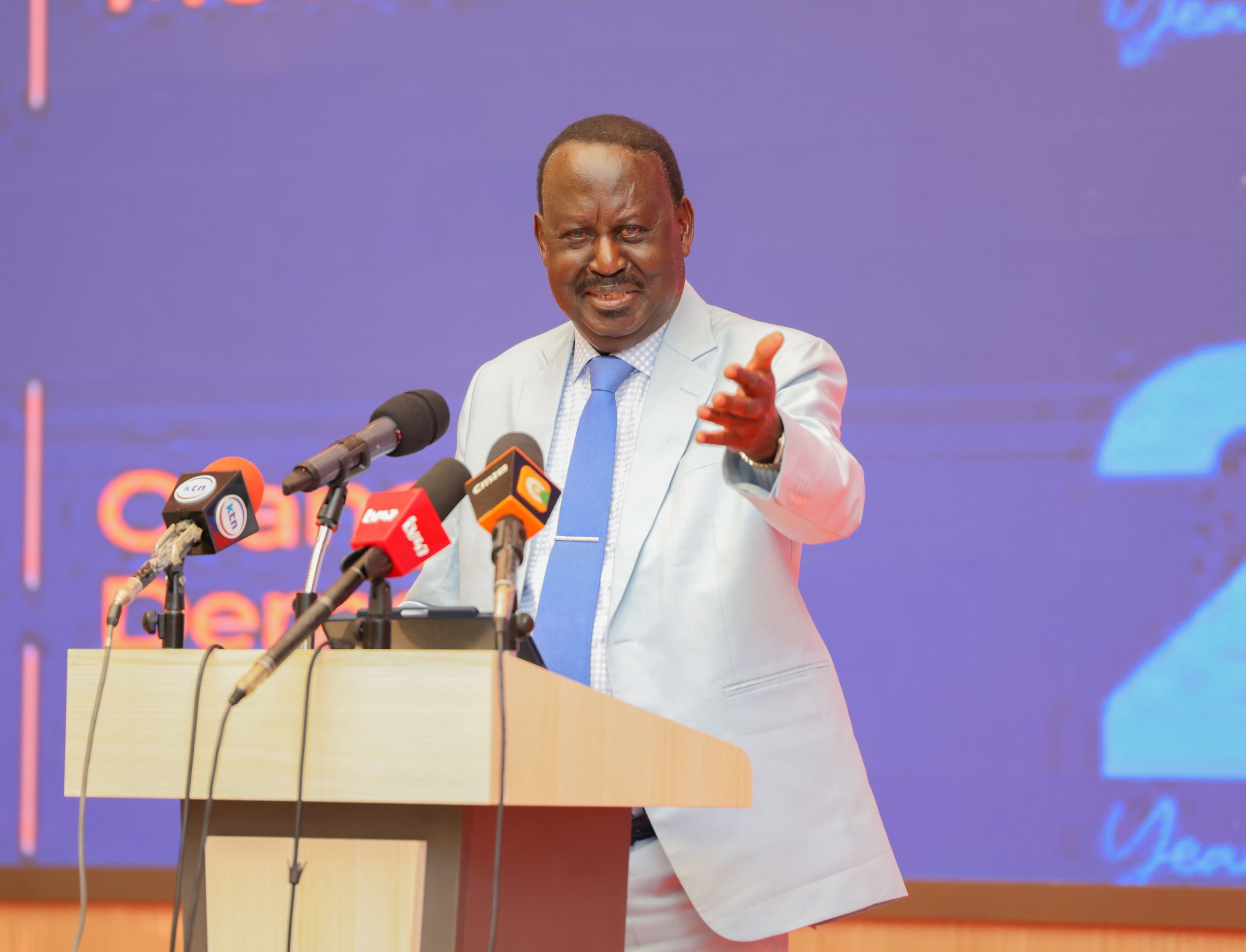Politics
Shame On You, They Were Going To Improve The Airport Not Take It, Raila Tells Off Adani Deal Critics
“When Adani came here and they wanted to remake the airport, too much noise was made in Parliament for no reason at all. Adani pulled out, now the airport is just left as it is,” he said.

Former Prime Minister Raila Odinga has launched a scathing attack on critics of the Adani deal that would have seen India’s Adani Group modernise and operate Jomo Kenyatta International Airport (JKIA), accusing them of misleading the public and costing Kenya a golden opportunity to cement its place as Africa’s leading aviation hub.
Speaking during an ODM Parliamentary Group meeting on Monday, Raila insisted that the Sh637 billion partnership was never about surrendering control of the airport but rather about bringing in private investment to upgrade Nairobi’s main gateway.
He said that by politicising the deal, opponents had not only misrepresented the facts but also undermined Kenya’s ability to compete with regional rivals.
“When Adani came here and they wanted to remake the airport, too much noise was made in Parliament for no reason at all. Adani pulled out, now the airport is just left as it is,” he said.
“They were not taking it away; they were bringing their money to invest and recover over time. Shame on those who sabotaged it.”
The arrangement would have seen Adani pump at least Sh238 billion into JKIA’s expansion, operating the facility for thirty years to recoup its investment.
Raila argued that such a partnership would have spared the government from massive borrowing while delivering world-class infrastructure.
He warned that the decision to cancel the deal has left Nairobi dangerously exposed at a time when Rwanda and Ethiopia are aggressively positioning themselves as regional aviation hubs.
Kigali, he noted, has already signed a similar agreement with Adani to construct its new international airport, a project that now threatens to eclipse JKIA’s stature in East Africa.
Resistance
Yet for all of Raila’s frustrations, the Adani deal attracted fierce resistance across several quarters.
Aviation workers feared it would lead to mass layoffs and the erosion of Kenya’s control over a strategic national asset.
The Kenya Aviation Workers Union went so far as to threaten strikes, saying that Kenyan staff risked being replaced by foreign labour.
Civil society organisations, including the Law Society of Kenya and the Kenya Human Rights Commission, moved to court arguing that the contract was negotiated in secrecy, lacked proper public participation and could saddle taxpayers with costly obligations for decades.
A whistleblower, Nelson Amenya, further fanned the flames by leaking details of the proposal.
His revelations included provisions that would have given Adani an 18 percent equity stake in JKIA even after the concession expired, a clause critics said was far too generous and contrary to the public interest.
Concerns also mounted that the financial projections underpinning the project were overly optimistic and that if passenger traffic fell short, the government would shoulder the risks while Adani walked away with guaranteed returns.
The backlash culminated in the High Court temporarily halting the project to allow for closer scrutiny.
President William Ruto’s administration eventually stepped in to cancel the deal altogether, citing public concerns and the need for a transparent approach to public–private partnerships.
Raila, however, remains unconvinced by the explanations.
He accuses unnamed local business and political interests of bankrolling smear campaigns to tarnish Adani’s reputation and clear the way for themselves.
According to him, the country has once again sacrificed long-term development for short-term politics.
“Some people were paid under the table to make noise in newspapers. They were not protecting Kenya; they just wanted the deal for themselves,” he said.
The collapse of the Adani deal leaves Kenya back at square one. JKIA continues to operate with outdated facilities, overcrowded terminals and recurring technical glitches, even as neighbouring countries press ahead with multi-billion-dollar expansions.
To Raila, the episode is a sobering lesson that Kenya cannot afford to politicise infrastructure investment if it hopes to remain competitive.
“The deal was politicised. Unless we wake up and act fast, JKIA will remain stagnant while others in the region grow into international hubs,” he warned.
Kenya Insights allows guest blogging, if you want to be published on Kenya’s most authoritative and accurate blog, have an expose, news TIPS, story angles, human interest stories, drop us an email on [email protected] or via Telegram
-

 Investigations1 week ago
Investigations1 week agoBillions Stolen, Millions Laundered: How Minnesota’s COVID Fraud Exposed Cracks in Somali Remittance Networks
-

 News1 week ago
News1 week agoUS Moves to Seize Luxury Kenya Properties in Sh39 Billion Covid Fraud Scandal
-

 Investigations1 week ago
Investigations1 week agoJulius Mwale Throws Contractor Under the Bus in Court Amid Mounting Pressure From Indebted Partners
-

 News1 week ago
News1 week agoMAINGA CLINGS TO POWER: Kenya Railways Boss Defies Tenure Expiry Amid Corruption Storm and Court Battles
-

 Business2 days ago
Business2 days agoEastleigh Businessman Accused of Sh296 Million Theft, Money Laundering Scandal
-

 Americas1 week ago
Americas1 week agoUS Govt Audits Cases Of Somali US Citizens For Potential Denaturalization
-

 Business2 days ago
Business2 days agoEXPLOSIVE: BBS Mall Owner Wants Gachagua Reprimanded After Linking Him To Money Laundering, Minnesota Fraud
-

 Business1 day ago
Business1 day agoMost Safaricom Customers Feel They’re Being Conned By Their Billing System

















